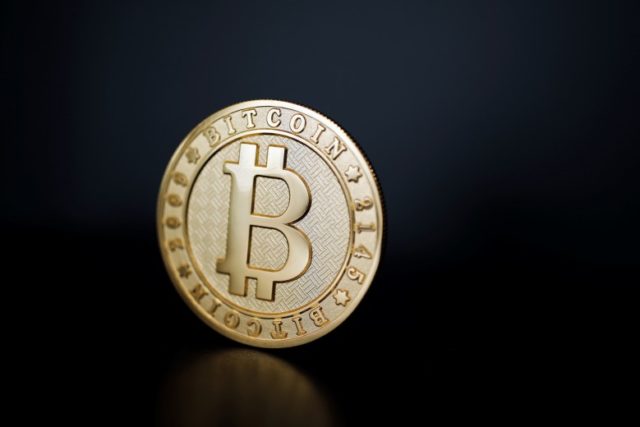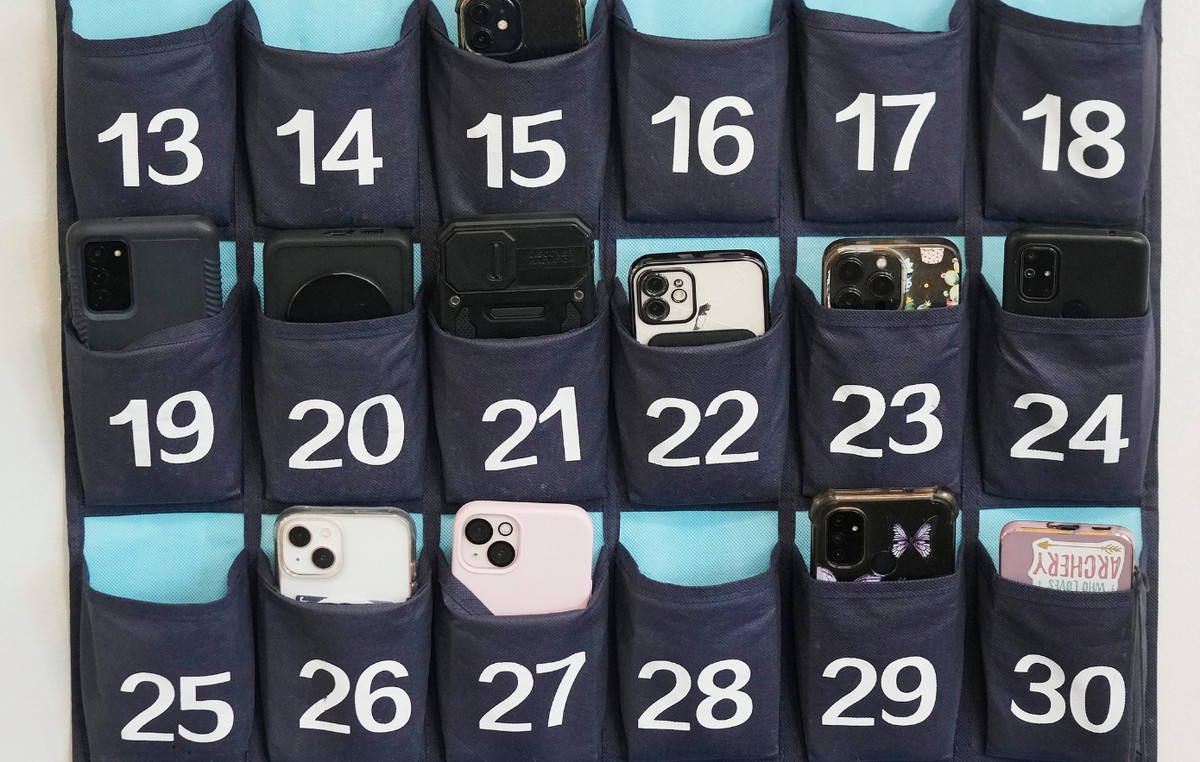The name of a familiar face that doesn’t come to mind, the car key that ended up who knows where when it was time to leave the house, a meeting with friends that resulted in an hour of delay because oblivion spoke louder.
All these are examples of sporadic and momentary cases of lack of memory, but the truth is that they tend to be more and more recurrent and appear earlier and earlier.
THE CNN, specialists in neurology and psychiatry say that there are many factors that may be contributing to this scenario, with stress and technology being the ones that stand out the most, with special attention to the second, which appears earlier and earlier in the lives of women. people and ends up having a direct impact on the ability to concentrate and memory. And the advancing years must also be included in this equation.
“Normal aging itself leads to a gradual and progressive loss of faculties, and attention, concentration, work performance and some forms of memory are among the first dimensions to be affected at ages as early as 30- 35 years”, says Alexandre Amaral e Silva, a neurologist at Hospital CUF Tejo and Hospital CUF Santarém.
“It’s not a matter of laziness or losing your mind,” says Amir-Homayoun Javadi, professor of Psychology and Cognitive Neuroscience at the University of Kent, UK.
The expert points out that the pandemic also played an important role in the determining factor for memory. “As we’ve been through a pandemic phase in the last couple of years, this makes it harder for our brains to create and recall memories.”
The multitasking myth
In 2018, Stanford University published an interview with Anthony Wagner, professor of psychology and director of the Stanford Memory Laboratory, in which the expert warned of the consequences of multitasking — performing several tasks at the same time, such as “watching” a series while scrolling on a social network, studying while having a written conversation with another person, working on more than one project at the same time.
For many people, the ability to do more than one task at the same time is a positive valence, almost a superpower of modern times — and often even present as a requirement in job advertisements — but the truth is that our brain doesn’t like this overload of work that much.
You can even perform tasks at the same time, but the attention given to each one of them is deficient and memory is impaired.
According to Wagner, who for a decade studied memory in an environment of multiple tasks performed in parallel, having published the results of this investigation in the journal Proceedings of the National Academy of Sciences, multitasking directly affects working memory and attention. and compromises simple memory tasks, like remembering where you left your house key the day before.
Neurologist Alexandre Amaral e Silva considers that “in most situations, multitasking is harmful, not only for memory but for cognitive performance in general”.
And explains why: “the division of attention by several tasks at the same time can compromise concentration, decrease the speed of information processing and compromise the quality of performance, leading to less efficiency in performing tasks”.
Basically, he says, moving from task to task, actually trying to do them at the same time, makes it difficult “to capture and retain the details of each one and lead to the recording of fragmented and less structured information”.
In 2020, the journal Nature published another study on multitasking, revealing that the simultaneous use of multiple digital tools — such as doing an online search while “watching” television — can impair attention, especially in young adults ( between 18 and 26 years old), making the ability to later recall specific situations or experiences worse.
The result, warns Alexandre Amaral e Silva, is “an overload of information that leads to a simplification of the approach to tasks and prevents an adequate reflection on the events that would be fundamental for an effective consolidation of memory”.
“In children and young people there is clear evidence of problems with attention, sleep disorders and anxiety with an impact in terms of academic performance related, in particular, to digital multitasking”, continues the neurologist.
Stress: fuel for alertness
Stress is a physiological response that plays an important role in putting the body in a state of readiness for a physical and cognitive challenge. It is the fuel for alertness and attention, but only when it is felt with weight and measure, which, in current lifestyles, tends to be less and less frequent.
“Science is beginning to report in animals that there is an effect of stress on cellular aging, but it is still not possible to identify this in humans and understand the long-term impact”, says Sofia Sousa, a neurologist at Hospital de Braga, who adds that the University of Minho has carried out some research on the impact of stress on cognitive functioning, whether of professionals, such as university professors and nurses, or students.
According to a study published in 2009 in the journal Frontiers in Behavioral Neuroscience, “stress is a strong modulator of memory function, however memory is not a unitary process and stress appears to exert different effects depending on the type of memory, as the explicit and the work”.
Working memory is a cognitive component that allows the temporary storage of information with limited capacity, which can be called present memory, the one that helps us remember something here and now and that builds ‘drawers’ with future memories.
“Science is starting to report in animals that there is an effect of stress on cellular aging, but it is still not possible to transfer it to humans and understand the long-term impact”, says Sofia Sousa, a neurologist at Hospital de Braga, who adds that the Universidade do Minho has carried out some investigations on the impact of stress on cognitive functioning, whether in professionals, such as university professors and nurses, or students.
According to a study published in 2009 in the journal Frontiers in Behavioral Neuroscience, “stress is a strong modulator of memory function, however memory is not a unitary process and stress appears to exert different effects depending on the type of memory, as the explicit and the work”.
Working memory is a cognitive component that allows the temporary storage of information with limited capacity, which can be called present memory, the one that helps us remember something here and now and that builds ‘drawers’ with future memories.
In the case of social networks, which are one of the main online entertainments, João Cardoso, a psychiatrist at Clínica Leite, does not hesitate to say that “they are made for this”, to trap people, to make them want to spend more and more time on them.
“Instagram and TikTok have an algorithm to always give you the news and that messes with our seeking system [procura]. This all has to do with dopamine, when we look for a good thing we produce endorphins, endocannabinoids, but it is dopamine that drives us to look for things,” he said.
In the case of adults, says neurologist Sofia Sousa, mobile devices and social networks end up “cultivating a lot in terms of information”, however, they can have “the effect of making us less socially active and social stimulation with other people is essential for proper cognitive functioning.
In children, in turn, the situation “is completely different”, since the constant use of gadgets “brings harm, because [as crianças] they are in a phase of neuronal development, they get more irritated and this interferes with learning”, warns the doctor.
“We have some studies that reveal that a child’s attention span has decreased over the last 20 years. Before, they could have, more or less, 12 seconds of focus, and a goldfish had eight seconds, after 20 years, children have an average of seven seconds and we have less attention span than a fish and this is worrying. We have to rethink everything that is canvas, they are terrible”, he warns.
The psychiatrist says that “we were not made to absorb so much information” and that, “in a phase of life in the transition of adolescence, the most used neurons stay and the less used ones leave”.
And what is the impact of gadgets, the rampant consumption of online information and social networks on long-term memory? “Call me in 50 years and we’ll talk”, says the psychiatrist, regretting that it is not yet possible to measure the impacts, but we estimate that they are bad.
When should small memory leaks be a cause for concern?
According to neurologist Alexandre Amaral e Silva, in younger people, despite being more at the mercy of multitasking and the effects of screens on concentration, “there is rarely a primary commitment to memory, and the most common reasons for these punctual and transient failures are factors such as anxiety/depression disorders, intellectual/emotional overload, nutritional and hormonal disorders or sleep disturbances”.
“Small punctual lapses, without relevant repercussion, such as the difficulty in remembering a name or knowing where an object is, are not a cause for alarm, which are usually overcome in a few seconds”, emphasizes the neurologist.
However, he points out that, “although the causes are mostly “benign”, in the sense that they are not degenerative diseases, they should not be minimized and should motivate a correct assessment and approach, particularly if they have a relevant impact on daily performance” .
For Alexandre Amaral e Silva, “the frequency of these failures, their impact on school, professional or family performance, with a decrease in income and productivity or compromise in interpersonal relationships, are the most relevant warning signs that should motivate the use of specialized support”.
Source: CNN Brasil







